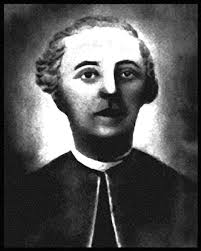Cláudio Manuel da Costa he was born on June 5, 1729, in Mariana, in the state of Minas Gerais. He studied at the Colégio dos Jesuítas, in Rio de Janeiro, and earned a bachelor's degree in Canons, at the University of Coimbra, in Portugal. Back in Brazil, he practiced law, and was later accused of participating in the Inconfidência Mineira.
The poet, who supposedly killed himself on July 4, 1789, in Ouro Preto, is a important name of Brazilian Arcadianism. Wrote the epic poem rich village, in addition to poetry in which pastoralism, idealized love, idealized woman and Greco-Latin references can be verified.
Read too: Parnassianism – literary school that also presented classical references
Biography of Cláudio Manuel da Costa

Cláudio Manuel da Costa was born on June 5, 1729, in Mariana, Minas Gerais. His father — João Gonçalves da Costa — was Portuguese, farmer and miner. In Rio de Janeiro, at the age of 15, the poet started his studies in philosophy at the Jesuit College. In 1747 he moved to Portugal.
In this country, studied Canons at the University of Coimbra and graduated in 1753. He then returned to Brazil, in 1754, and took up residence in Vila Rica (today, Ouro Preto). In this town, he practiced law and was also a miner. In 1762, he began working as Secretary of the Provincial Government, a position he held for three years.
In 1768, founded Arcadia Ultramarina, a literary society, in which he used the pseudonym Glauceste Saturnius. Between 1769 and 1773, he held the post of land measuring judge. Years later, in 1782, becameif friend of Tomás Antônio Gonzaga (1744-1810).
later both were accused of participating in the Mining Inconfidence, a separatist movement. Thus, Cláudio Manuel da Costa was arrested and allegedly committed suicide at the Casa dos Contos, in Ouro Preto, on July 4th, 1789. However, some scholars defend the murder thesis.
Although the poet never married, he has left five children, it is known. So, for over 30 years, he he lived together with the ex-enslaved Francisca Arcângela de Sousa. Everything indicates that she received her freedom when she became pregnant or gave birth to the writer's first child.
Read too: Tiradentes – the great martyr of the Inconfidência Mineira
Characteristics of the work of Cláudio Manuel da Costa
Although his first poems show traces of the Barrocco, Cláudio Manuel da Costa is an author belonging to Thebrazilian rcadism. His works, therefore, have the following characteristics:
pastoralism
Anthropocentrism
idealized love
idealized woman
Greco-Latin references
bucolicism
flee city: city escape
mediocrity aurea: golden mediocrity
Locus amoenus: warm place
truncated uselessness: eliminate the useless
carpe diem: enjoy the moment
Thus, the Thercadism it opposes religiosity and baroque excesses. In addition, he values the harmony of nature. For the arcade, simplicity is everything. Thus, it is necessary to abandon the useless excesses of city life and live in the pleasant space of the countryside, where the shepherd and the shepherdess (the poet and his beloved) can be happy.
Works by Cláudio Manuel da Costa
![Cover of the book “Cláudio Manuel da Costa”, by Global Editora.[1]](/f/e89daf1d964c189e6659ad699e804f29.jpg)
metric worship (1749)
Muscle metric (1751)
Episode in memory of Friar Gaspar da Encarnação (1753)
labyrinth of love (1753)
Poetic Works by Glauceste Saturnius (1768)
the accommodating parnassusandpoetic works (1768)
rich village (1773)
handwritten poetry (1779)
rich village
The Arcadians, in their works, rescued themes from classical antiquity. Because of this, they produced epics, just like the old ones. Therefore, the work rich village it is a poem epicby Cláudio Manuel da Costa. Divided into 10 corners, with decasyllable verses, it tells the story of Vila Rica's formation:
Let us sing, Musa, the first foundation
From the Capital of Minas, where the entire
Keeps it still, and the memory still lives
That fills the story with applause from Albuquerque.
The epic is a narrative written in verse and presents a hero. In the case of the poem rich village, O hero is Antônio de Albuquerque Coelho de Carvalho (1655-1725), which ended with the War of Emboabas and was the founder of Vila Rica. The book also tells the love triangle story between the beautiful and idealized Indian Aurora, the indigenous Argasso and the sertanista Garcia:
Several were entertained
In counting the success; and already noticed
Garcia, who established himself in the Indies,
That one of them with a more serene gesture
He put [his eyes] on it; per wave
She observes, rather than explains, that she knows him;
From the Portuguese language it seems to you
Who understands; and more haunts the good Garcia
When seeing how on a finger she held
A memory of gold; the jewel watches;
Shut up, and the better the time, the more reserve,
Expressing in a woe, which the soul exhales,
The more, which for then bury and remain silent.
Thus, the work intends to exalt the king's domain, but also search portray national elements of a country whose identity was still in the making. Hence the heroic presence of the São Paulo pioneers and their relationship with Brazilian indigenous peoples in the process of civilization. All portrayed as epic characters who participated in the formation of the also epic city of Vila Rica:
At last you will be sung, Vila Rica,
Your name imprinted in the memories remains;
You will have the glory of having given the cradle
Who makes you rotate through the Universe.
See too: Five poems by Alphonsus de Guimaraens
Poems by Claudio Manuel da Costa
In addition to being the author of rich village, Cláudio Manuel da Costa is known for his sonnets, like the poem next, titled Epitaph. Thus, in decasyllable verses, the me lyric he tells the “unleashed hiker” that time passes and youth turns into “short gray”, that is, death is inevitable.
The lyrical self claims that luck, out of envy, stopped Salicio's steps, who, in life, had had the applause of fame, that is, had been recognized and admired. He then wishes for a temple to be erected in memory of the dead, and declares that if the pastor (the poet) has managed to capture the violent horror of death, he, the horror, will be eternalized in his poetry:
Here lies, untied walker,
From the years the splendor in gray soon,
Salício, that device that describes
In this stone the revenges of his fate.
To the applause of fame commissioned,
Of envy luck the steps stopped him,
Now, let the land be light,
And in the shadows the consecrated vow.
Temple is built with nostalgia;
This hard marble the feeling
Here, always watch him tenderly.
Make up for the violent horror of death,
That, if the Pastor has been able to steal,
Eternal will make our torment.
In the next sonnet, of character metalinguistic, the poetic voice says his verses come from the depths of his soul, but they are the result more of the hurt than of the poet's skill. Still, he tells his interlocutor, an idealized woman (“Beautiful Idol”), that the verses (decasyllables) are dedicated to her.
The lyrical self tells the beloved woman that if she notices the poet's suffering, she must then remember that "Never could any time at your altars/Another joyful victim be accepted." Since the poetic voice compares the woman to an idol, the altar is the place of sacrifices in honor of this idol, with the poet being metaphorically sacrificed:
These from the intimate soul portrayed,
In rough accent, metric moans,
More on the strength of the hurt spent
Than articulated ingenuity charges,
To whom but thee of my care
beautiful idol, object of the senses,
Because you saw them produced yourself,
Should they be worthily consecrated?
Receive the tender vote; and if you notice
In tears, in eagerness, in tears undone
A soul that was the center of grief,
Remember that from damage satisfied
Never could for some time on your altars
Another happy victim to be accepted.
Image credit
[1] Global Editorial Group (reproduction)
by Warley Souza
Literature teacher
Source: Brazil School - https://brasilescola.uol.com.br/literatura/claudio-manuel-costa.htm

